Brexit: Japan warns firms may move European HQ out of Britain
- Published
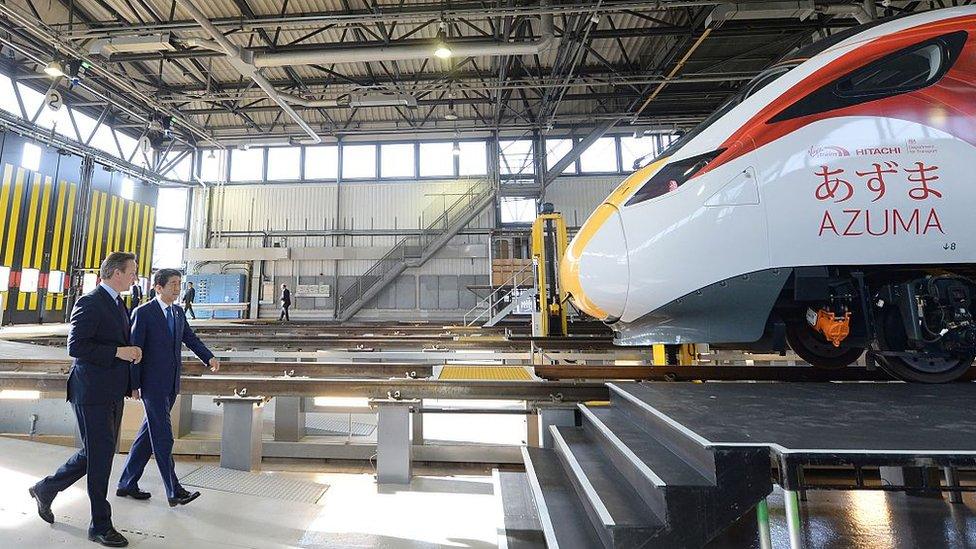
Hitachi is one of many Japanese companies heavily invested in the UK
Japan's government has warned that Brexit could result in the country's firms moving their European head offices out of Britain.
The strongly worded report from Japan's foreign ministry, external says the firms might want to move "if EU laws cease to be applicable in the UK".
It calls on Theresa May's government to deal with the companies' concerns in a "responsible manner".
Downing Street received the report earlier this week, the BBC understands.
Japanese firms employ an estimated 140,000 workers in the UK, with Nomura bank, manufacturing giant Hitachi and carmakers Honda, Nissan and Toyota all having major bases in the country.
The letter warns: "Japanese businesses with their European headquarters in the UK may decide to transfer their head-office function to Continental Europe if EU laws cease to be applicable in the UK after its withdrawal."
'Open question'
In an interview with the BBC, Japan's ambassador to the UK, Koji Tsuruoka, said: "We have a very huge stake in making Brexit a success that will not damage or hurt the global economy."
He said it was an "open question" whether Japanese firms would pull out of the UK, but that "those decisions have not been made".
Japan's Prime Minister Shinzo Abe will discuss Brexit with Mrs May at the G20 Summit in China. "Unless you have international cooperation Brexit is not going to be an easy task," Mr Tsuruoka said.
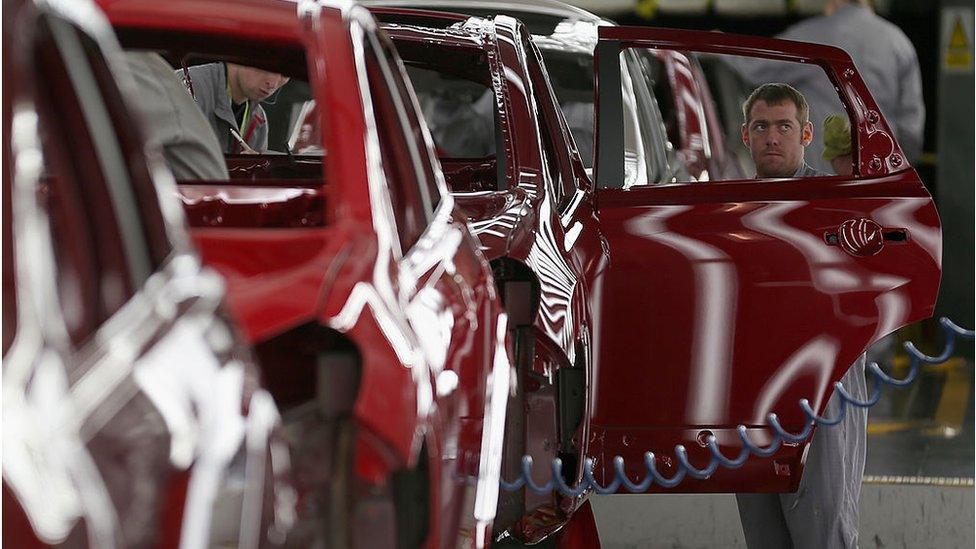
Japan's Nissan produced more than 500,000 cars in the UK in 2015
Specific companies are not mentioned, but the document states that it was written in response to "a variety of requests from Japanese businesses operating in the UK and the EU".
The report was published on Friday, but received widespread coverage on Sunday when Mrs May arrived in China for the G20.
G20 trade talks
The Prime Minister is explaining to leaders from the world's 20 largest economies what Britain's decision to leave the European Union might entail.
Mrs May said she would use the summit to scope out trade deals so they could be signed quickly after the UK's exit from the EU.
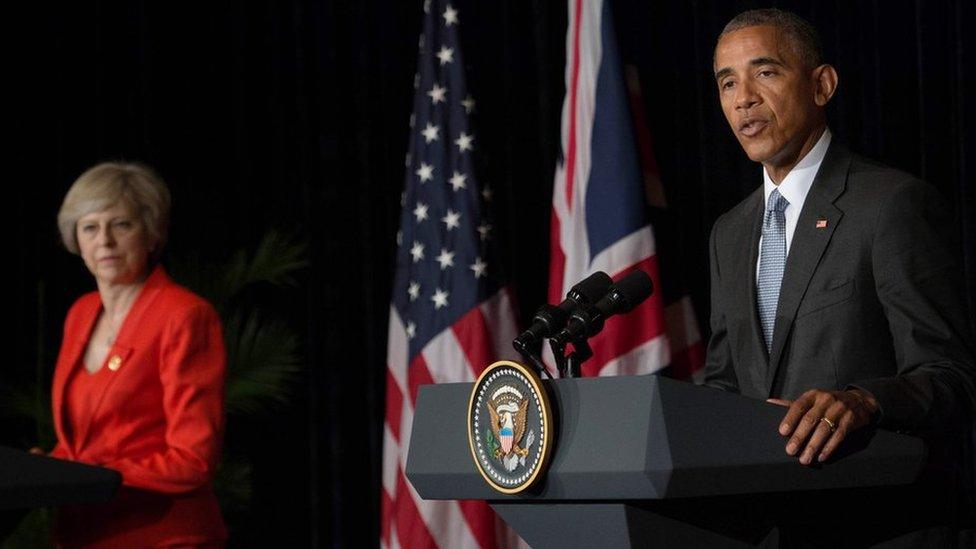
Theresa May and the US President discussed Brexit at the G20 summit
President Barack Obama, however, stressed that the US would prioritise trade talks with the Asia-Pacific region and the EU.
'Early as possible'
The Japanese report "strongly requests" that the UK government will consider Japanese investment into the UK and "respond in a responsible manner to minimise any harmful effects on these businesses".
It urged that Britain and the EU set out the details of the Brexit process "as early as possible".
In particular, the document says Japanese firms would like to see the following agreed between Britain and the EU:
Maintenance of trade in goods with no burdens of customs duties and procedures
Unfettered investment
An environment in which services and financial transactions across Europe can be provided and carried out smoothly
Access to workforces with the necessary skills
Harmonised regulations and standards
Ahead of the referendum, Japanese firms, including Hitachi and Nissan, and the country's Prime Minister Shinzo Abe warned investment could fall if the UK left the European Union.
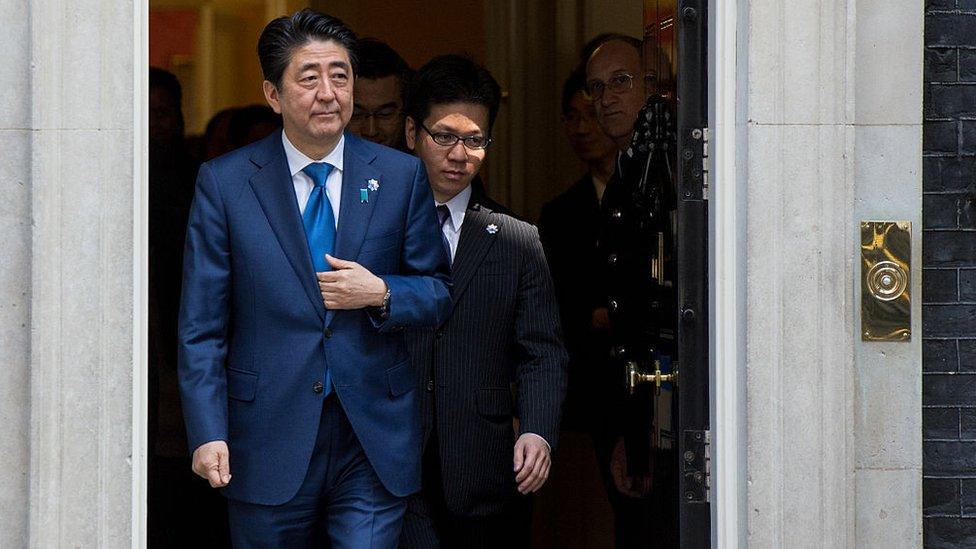
Japanese Prime Minister Shinzo Abe made warnings about Brexit on a visit to the UK in May
'Sand in the engine'
Japanese car manufacturers account for more than 50% of the cars made in the UK.
The ministry's report came as something of a surprise to the UK car industry, even though it was consistent with its wish list from Brexit, according to BBC Business Editor Simon Jack.
The manufacturers want tariff-free access to the EU's single market as a starting point, as well as the freedom to move workers between plants, he said.
"All the car manufacturers have very integrated pan-EU supply chains and any interruption to that will be sand in the engine," he said.
However, Japanese car makers are not about to announce that a model destined for a UK plant will move elsewhere, he added.
- Published4 September 2016
- Published4 September 2016
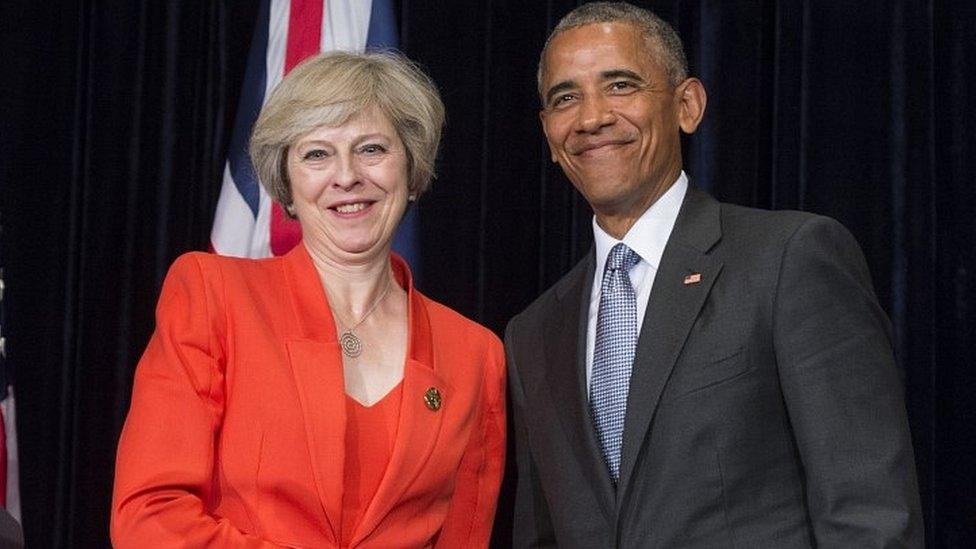
- Published4 September 2016
- Published4 September 2016